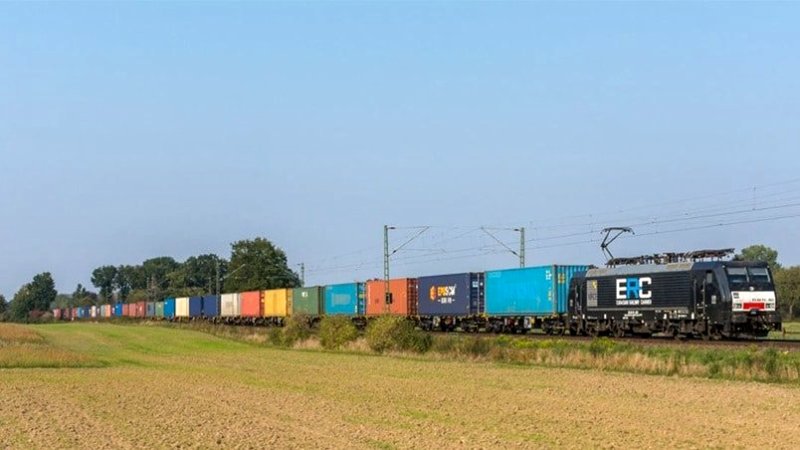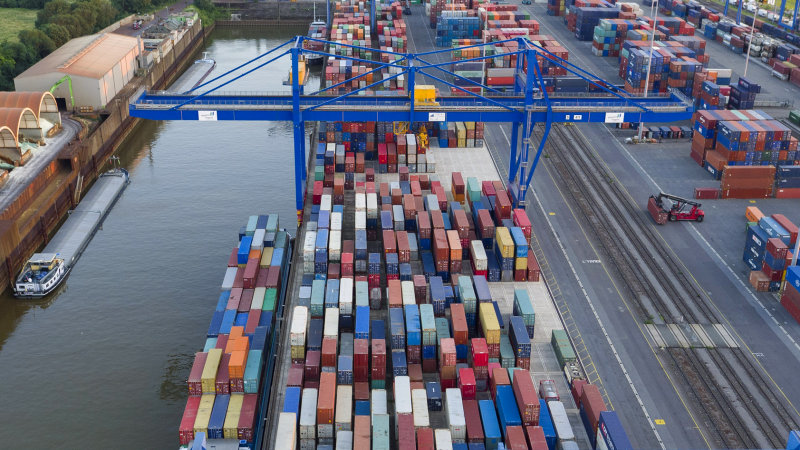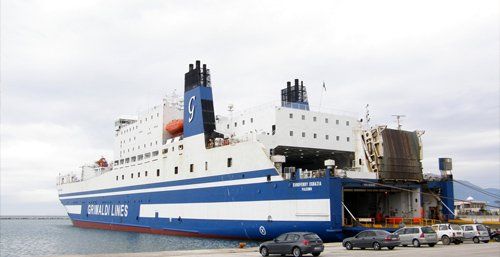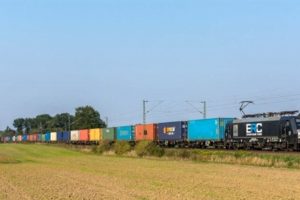The container train, part of the China-Europe Railway Express, left Urûmchi on April 26, 2024, bound for Salerno via a route that includes sea crossings through three seas. This journey has sparked political controversy after the Uyghur Human Rights Project, Uyghur American Association, and Safeguards Defender sent a letter on May 7 to the Italian ambassador in Washington. They claim that the agricultural products on the train were produced with "forced labor." In their letter, the NGOs urge the Italian government to investigate these imports.
The letter states that allowing this train to enter Italian territory with products allegedly made through forced labor contradicts the Italian government's decision to revoke the 2019 Belt and Road Initiative memorandum of understanding. "As groups committed to supporting and promoting human rights globally, we are deeply concerned about the implications of such imports for Italy's commitment to human rights and ethical trade practices," the NGOs write.
The letter further explains that "the modern slavery of the Uyghur people and the ongoing crimes against humanity have been extensively documented by international organizations, independent media, and government entities. The use of forced labor, in any form, violates fundamental human rights principles, including the right to freedom from slavery and forced labor, as enshrined in various international conventions and treaties to which Italy is a party."
Regarding the agricultural sector, Xinjiang produces over 85% of China's cotton, 70% of its tomatoes, 50% of its walnuts, and 28% of its grapes. A January 2022 report by Professors Laura T. Murphy and Nyrola Elim states that "significant evidence reveals that labor transfers in the Uyghur region occur in an unprecedented coercive environment, sustained by the constant threat of re-education and internment. Many indigenous workers cannot voluntarily refuse or leave agricultural work, making these programs equivalent to forced population transfers, forced labor, human trafficking, and slavery."
The letter also notes that the U.S. Congress has adopted the Uyghur Forced Labour Prevention Act, "which establishes a rebuttable presumption that all goods from the Uyghur region are products of forced labor." In Europe, the European Parliament has approved a regulation allowing the Union to ban the sale, import, and export of goods made using forced labor. Thus, according to the three NGOs, member state authorities and the European Commission can investigate suspicious goods, supply chains, and producers.
The NGOs' letter also recalls the warning issued in August 2023 by Coldiretti and Filiera Italia about agricultural imports, particularly tomato concentrate, from the Xinjiang region. According to the two Italian associations, "there is a fifty percent increase in imports of Chinese tomato concentrate at half the price of Italian produce."
The China-Europe Railway Express train is part of a bimodal rail-sea transport system covering about ten thousand kilometers along the Middle Corridor, passing through Central Asian countries, the Caspian Sea, the Black Sea, and the Mediterranean to reach the port of Salerno. Li Shuanping, head of the Belt and Road International Cooperation Office of the Xinjiang Uyghur Autonomous Region Development and Reform Commission, stated that: "the first Urumqi-Salerno intermodal rail-sea freight train of the CR Express has departed, providing a guarantee for the stability of the global supply and industrial chain."































































